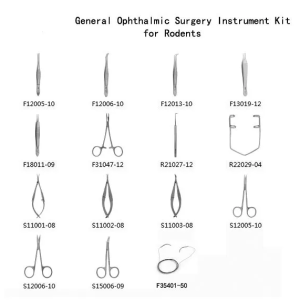BehaviorScan is an advanced automated rodent monitoring system designed to facilitate behavioral research in mice and rats. With its high-resolution tracking capabilities and real-time data acquisition, BehaviorScan offers a comprehensive solution for monitoring various behavioral parameters. Its user-friendly interface and customizable testing protocols make it an essential tool for researchers seeking accurate and efficient behavioral analysis.
ConductScience offers the BehaviorScan: Automated Rodent Monitoring System.

Conduct Science is a premier manufacturer of research infrastructure, born from a mission to standardize the laboratory ecosystem. We combine industrial-grade precision with a scientist-led tech-transfer model, ensuring that every instrument we build solves a real-world experimental challenge. We replace "home-brew" setups with validated tools ranging from microsurgical suites to pathology systems. With a track record of >1,600 institutional partners and hundreds of citations, our equipment is engineered to minimize human error. We help you secure more data for less of your budget, delivering the reliability required for high-impact publication.


bool(false)

bool(false)
| Specifications | Mouse | Rat |
|---|---|---|
| Dimensions | L: 31.80cm x W: 21.60cm x H: 8.90cm | L: 46.75cm x W: 27.30cm x H: 11.45cm |
| Automated Cage w/software | BehaviorScan Cage & software included | BehaviorScan Cage & software included |
| Multiple assays at the same time with multiple-biosensors. | Yes | Yes |
| Modular devices with flexibility in assay. | Yes | Yes |
| USB operation | Yes | Yes |
| All assays can be conducted at normal homecage | Yes | Yes |
| Highly automated | Yes | Yes |
| Active/inactive data | Yes | Yes |
| Locomotion and rearing data | Yes | Yes |
The BehaviorScan Automated Rodent Monitoring System is a state-of-the-art research tool designed by ConductScience. This innovative system is specifically designed to enhance behavioral research in rodents. By providing high-resolution tracking and real-time data acquisition, BehaviorScan enables researchers to gain valuable insights into rodent behavior.
BehaviorScan offers a user-friendly interface that simplifies system setup, operation, and data analysis. Researchers can easily customize testing protocols according to their specific experimental requirements, ensuring accurate and targeted data collection.
The system excels in multi-parameter monitoring, capturing a wide range of behavioral parameters simultaneously. It allows researchers to track and analyze parameters such as locomotion, exploratory behavior, social interactions, anxiety-related behaviors, and more. By automating the monitoring process, BehaviorScan eliminates the need for manual observation, saving time and reducing potential observer bias.
BehaviorScan seamlessly integrates with other research tools and software, facilitating comprehensive data analysis. It offers connectivity options such as USB, Ethernet, etc., enabling easy data transfer and compatibility with commonly used software and analysis platforms.
Behavioral research plays a crucial role in understanding various aspects of rodent behavior, ranging from exploratory patterns to social interactions and cognitive abilities. Conducting comprehensive behavioral analysis requires accurate and efficient monitoring systems that capture the complexity of rodent behavior. BehaviorScan: Automated Rodent Monitoring System is designed to meet these research demands by offering advanced tracking capabilities, real-time data acquisition, and user-friendly features.
BehaviorScan is widely used in research fields such as neuroscience, psychology, pharmacology, and behavioral genetics. It is utilized in studies investigating various aspects of rodent behavior, including but not limited to:
The BehaviorScan system includes the following components:
BehaviorScan enables a wide range of behavioral tests, including:
BehaviorScan offers researchers a comprehensive solution for automated rodent behavioral monitoring. Its high-resolution tracking capabilities and real-time data acquisition provide valuable insights into rodent behavior. By automating the monitoring process, BehaviorScan enhances research efficiency and minimizes observer bias.
To use BehaviorScan, follow these general steps:
BehaviorScan: Automated Rodent Monitoring System by ConductScience is a sophisticated research tool designed to enhance behavioral analysis in mice and rats. With its high-resolution tracking capabilities, real-time data acquisition, and user-friendly features, BehaviorScan offers researchers a comprehensive solution for automated rodent behavioral monitoring. Its customizable testing protocols, multi-parameter monitoring, and data integration capabilities make it an essential tool for various fields of research.
The BehaviorScan Automated Rodent Monitoring System provides researchers with a powerful and efficient tool for studying rodent behavior. By automating the monitoring process and offering high-resolution tracking and real-time data acquisition, BehaviorScan enhances research efficiency and accuracy. With its user-friendly interface, customizable testing protocols, and compatibility with other research tools, BehaviorScan proves to be an indispensable asset for researchers in neuroscience, psychology, pharmacology, and behavioral genetics.
| Species | Mouse, Rat |
|---|
You must be logged in to post a review.
Reviews
There are no reviews yet.